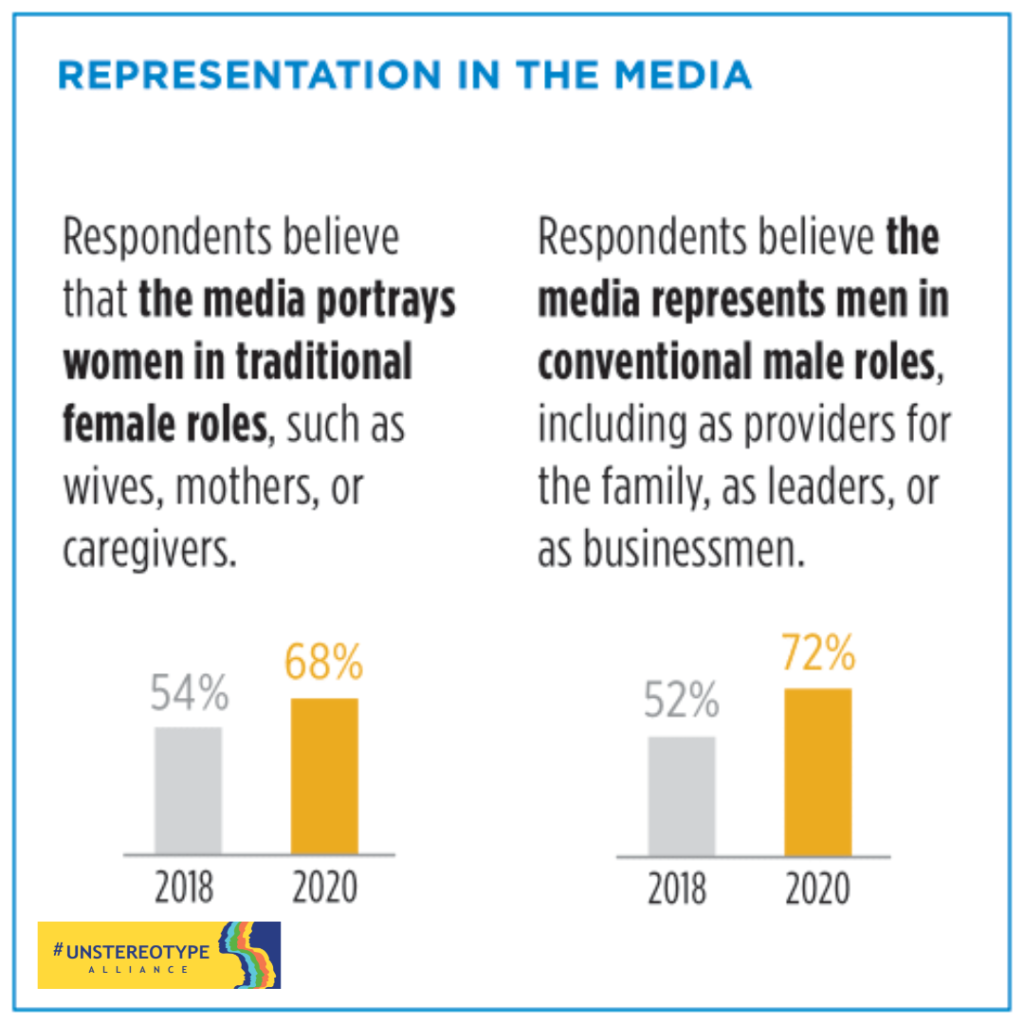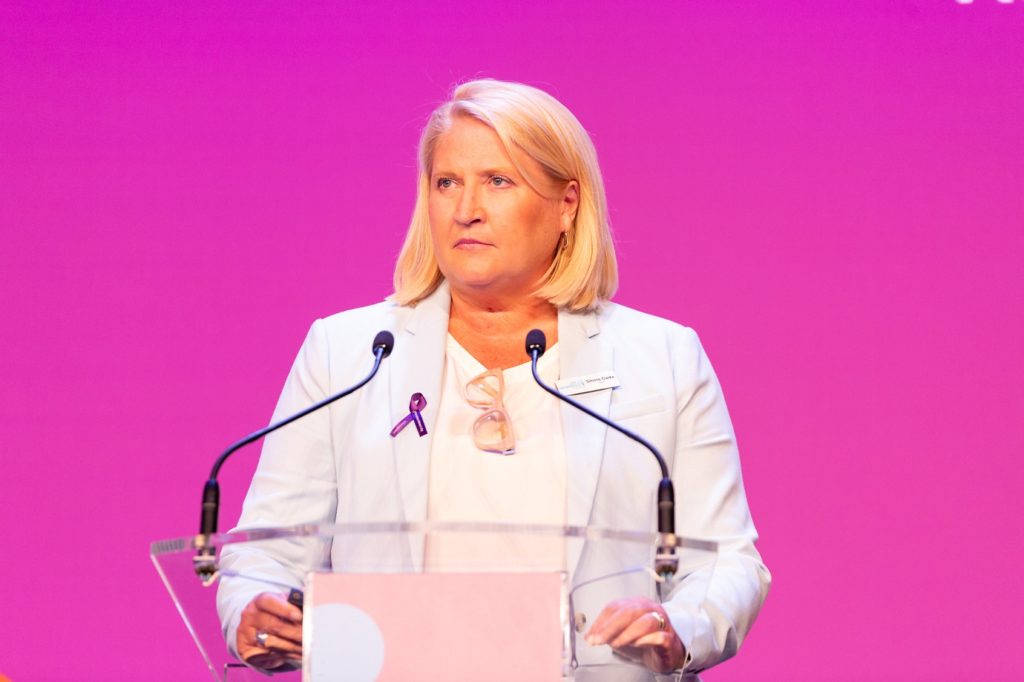New global data from more than 20 countries and 20,000 respondents makes clear what we already knew anecdotally: that attitudes towards women and gender roles have deteriorated since COVID-19, and we are seeing more of these harmful stereotypes played out and reflected in the media.
The Levers of Change: Gender Equality Attitudes Study 2022, released in late June, is a bi-annual global study that tracks attitudes towards gender. It was developed under the leadership of UN Women, in partnership with Johnson & Johnson, Kantar, Procter & Gamble and Unilever.
The latest data paints a sobering picture of some alarming global trends towards to gender, domestic violence and women in general, with some of the key findings including that:
- 19 per cent of all respondents believe that there are acceptable circumstances for someone to hit their spouse or partner— that’s an increase of 2 percentage-points compared to 2018
- Nine in 10 respondents agree that equal pay for equal work is important to their country’s future success, yet 52 per cent of men aged 16-19 and 54 per cent of men aged 20-34, agree that “women should work less and devote more time to caring for their family”
- 44 per cent of all respondents agree that it is easy for women to be hired as skilled workers, while 57 per cent believe that the same is true for men
- surprisingly, 25 per cent of respondents agree that “in times of food shortages, priority should be given to men”, and 31 per cent of respondents agree that “when jobs are scarce, men should have more right to a job than women”.
Alarmingly, these findings show that young men aged 16 to 34 now hold some of the most regressive attitudes towards gender.
The next generation of women are strong advocates for change. Yet globally, a concerning number of young men share far more traditional and damaging attitudes towards gender equality, protection and women in general.
What’s driving this?
The report shows large swings in terms of community attitudes regarding how women and men are being portrayed in the advertising we are surrounded by every day, with findings including that:
- 68 per cent of respondents believe the media portrays women in traditional female roles, such as wives, mothers, or caregivers which is an increase of 14 percentage points since 2018
- 72 per cent believe the media represents men in conventional male roles, including as providers for the family, as leaders or as businessmen, which is an increase of 20 percentage points since 2018.

Advertising has long been considered a mirror for cultural and gender norms, reflecting the faces, trends, fashions and even politics of the day. Data also shows that COVID-19 has exacerbated inequalities in our society, perpetuated in Australian advertising.
These findings demonstrate why social norms are at the heart of our fight for gender equality. Positive representation of the diversity of all people – be it related to gender, race, age, ability, ethnicity, religion, sexuality, language or education – in advertising and media are critical to creating an equal and open society.

We can not ignore the power of the media in these discussions, which is why UN Women and leading brands such as Coles, Unilever, Mars Wrigley, IPG and Westpac joined forces to establish the Unstereotype Alliance – a 25-strong coalition of major brands and advertising and media agencies creating an advertising “force for good”, designed to eradicate stereotyping in the media.
Working in collaboration with some of the largest global and national organisations in Australia, we are reimagining a world where damaging stereotypes are a thing of the past.
Engaging with more advertisers to eradicate the portrayal of harmful stereotypes and use their considerable influence to create new and equitable social norms is just the beginning.
It’s one of the first steps we can make to ensure that the next generation of young men AND women have equally positive attitudes and understanding of the importance of equality for all of us.
Find the full Levers of Change: Gender Equality Attitudes Study here.

